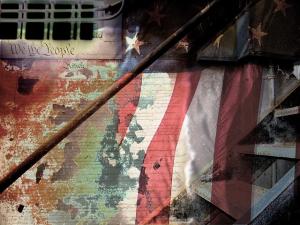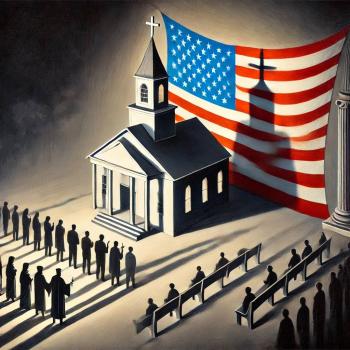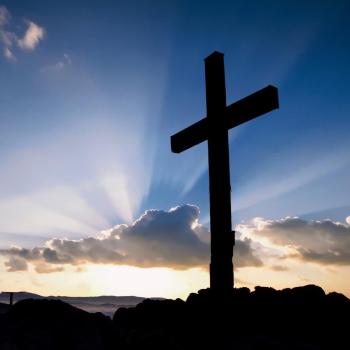
A Critical Debate for America
Before there were founding fathers, the Declaration of Independence and the U.S. Constitution — all of which come to mind as we celebrate July 4th — there were religious pilgrims who sought religious freedom in the New World.
American school children learn about the English pilgrims who sailed aboard the Mayflower and landed at Plymouth Rock in 1620. But I’m not talking about those religious pilgrims today. I’m talking about lesser-known French Huguenots who fled bloody persecution by the Catholic Church and French kings during the volatile 16th-18th centuries.
We don’t remember these Protestant pilgrims on July 4th, nor do we mention them at Thanksgiving for the most part. Yet, we should consider the sacrifices they made in the name of religious freedom.
We also should remember that the key word is “freedom” – freedom to worship or not worship as one pleases in a country that has no state religion. That issue is an important one in a time when Christian nationalism is rearing its ugly head.
The French Wars of Religion
So, what do French Huguenots have to do with any of these issues? Quite a bit, as it turns out.
The Protestant Reformation reached France in the early 16th century, and the Catholic Church was none too pleased. Ninety percent of the French population was Roman Catholic at the time, which gave the church a great deal of power. It should be no surprise that the church intended to hold onto its power even if it meant bloodshed, according to the Huguenot Society of America.
The church was concerned that “Protestantism was quickly embraced by members of the nobility, by the intellectual elite, and by professionals in trades, medicine and crafts. It was a respectable movement involving the most responsible and accomplished people of France,” the society explained. “It signified their desire for greater freedom religiously and politically.”
Freedom Given, Freedom Taken Away
Religious unrest and violence plagued 16th century Europe. In France, the Protestant Huguenots had gained the right to practice their religion by early in the century, but there were certain limitations. They were not allowed to worship within towns or at night, for example, and they could not carry weapons.
But by early 1562, the French king decided to revoke their freedoms. On Sunday, March 1, the Huguenots were holding a service in a barn in Vassy when the Duke of Guise (a Catholic) sent some of his soldiers to intervene.
The soldiers broke into the barn and murdered a large number of worshippers. Shortly afterward, a group of Huguenots massacred Catholics in Sens and Tours, and these events set off several decades of carnage that became known as the French Wars of Religion.
The Slaughter Escalates
On Aug. 23-25,1572, Catholics formed militias that hunted down Huguenots across the country. Thousands of Protestants died. The lucky ones were murdered right away, and many others were tortured and mutilated before being killed.
“Civil wars followed,” the Huguenot Society said. In 1590, the Protestants won a decisive victory over the Catholics, and for a time, French authorities agreed to tolerate the Huguenots and allow them to worship as they pleased.
However, those freedoms ended less than 100 years later. In October 1685, the king of France gave the Huguenots a choice: either convert to Catholicism or resist and face imprisonment for men and convents for women. Thousands of Huguenots fled France.
Please note that these Protestants had no master plan for settling in America and establishing Christianity as the state religion. These people were fleeing for their lives and for the hope of religious freedom. They were escaping religious persecution, not looking to persecute others in their new homeland.
Fleeing France
“Huguenot settlers immigrated to the American colonies directly from France and indirectly from the Protestant countries of Europe, including the Netherlands, England, Germany, and Switzerland,” said the Huguenot Society of America.
Many settled along the east coast of North America, especially in territories that became Massachusetts, New York, Pennsylvania, Virginia and South Carolina, the organization explained.
Some of my ancestors may have been part of the emigration.
Our Founding Fathers
“Just as France suffered a notable loss through the emigration of these intelligent, capable people, so the American colonies gained. The colonists became farmers, laborers, ministers, soldiers, sailors and people who engaged in government,” the society said.
“The Huguenots supplied the colonies with excellent physicians and expert artisans and craftsmen.” Among them were the father of Paul Revere and a grandfather of George Washington.
The Huguenot Society of America has excellent information about this time period, which you may read by clicking here. Click here. to learn more about the Vassy massacre.
Freedom to Worship or Not
Why should 21st century Americans care about events that occurred in France or other European countries during the 16th and 17th centuries? Why should we care about the religious pilgrims?
It should matter because most of our founding fathers – whose accomplishments we celebrate on July 4th — were only a few generations removed from the French and English religious pilgrims who settled in this country.
A Pressing Issue for Us
“The Declaration of Independence recognizes these rights as ‘endowed by (our) Creator.’ The Constitution and other legal protections reflect the importance of religious freedom to America,” the Heritage Foundation explained. “Fast forward almost 250 years and religious freedom is one of the most pressing issues in American culture today.”
Religious freedom means that people “shouldn’t have to go against their core values and beliefs in order to conform to culture or government.” It also means that people have the right “to live, speak, and act according to their beliefs peacefully and publicly.”
The Heritage Foundation stated that religious freedom “prevents the cultural majority from using the power of the state to impose their beliefs on others. This protects everyone – religious and nonreligious alike – from the government becoming so powerful that it can tell people what to think and act.
Threats to Our “Most Sacred Right”
“Conscience has been considered the individual’s most sacred right. A government that intrudes on conscience will not hesitate to intrude on our other freedoms.”
And therein lies the danger of declaring the U.S. a “Christian nation” as defined by right-wing conservatives. The religious pilgrims who came to our shores so many years ago – such as the Huguenots and English Pilgrims — and the founding fathers who came later believed in religious freedom. That means freedom to be a Christian, Muslim, Jew, Buddhist, Hindu, agnostic or atheist, or something else.
“Religious freedom preserves America’s diversity, where people of different faiths, worldview, and beliefs can peacefully live together without fear of punishment from the government,” the Heritage Foundation stated. “Efforts to repress religious freedom is not just an attack on individual liberty and human dignity, but on the very foundation that has made America strong.”
Keep this in mind as you celebrate July 4th.













